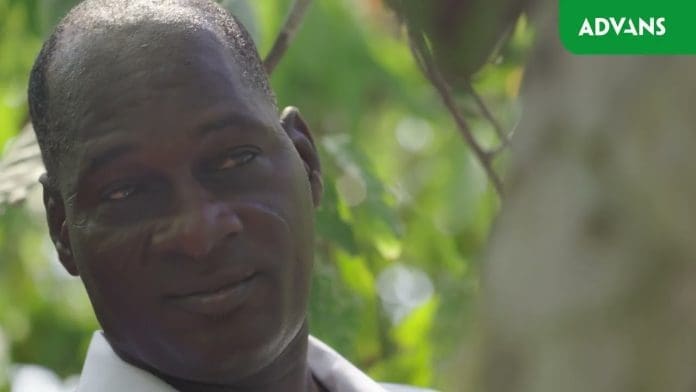
Advans International celebrated 20 years of operations this week with a three-day strategic seminar near Paris, bringing together leadership from across its African network to chart the next phase of the microfinance institution’s growth. The milestone comes as the group serves more than 735,000 clients across six African countries, including Ghana.
The anniversary celebrations kicked off with quarterly board meetings and CEO working sessions before culminating in the flagship Paris seminar. The campaign will continue with media engagements in London and Nairobi, alongside internal activities across the network. It’s a rare moment of reflection for an organization that’s been moving fast since its 2005 launch.
Founded in 2005, Advans has maintained operations in Cameroon, Côte d’Ivoire, Ghana, the Democratic Republic of Congo, Nigeria, and Tunisia throughout its existence. The focus has remained consistent: providing financial services to small businesses and individuals who struggle to access formal banking. By September 2025, the group had disbursed more than one million loans totaling 3.7 billion euros across its African operations.
Women entrepreneurs represent a significant portion of Advans’ client base. The group served over 235,000 women by the end of 2024 through specialized products like El Baya in Tunisia and AdvansHER in Ghana. These aren’t just standard loans with different names. The products come with tailored terms that acknowledge the specific challenges women business owners face in accessing capital.
Rural communities also feature prominently in Advans’ strategy, accounting for more than 23 percent of total clientele. In Côte d’Ivoire, the institution has rolled out specific solutions for cooperatives and village associations. One notable innovation is a digital school loan designed for rural households, an initiative that earned recognition through the European Microfinance Award.
Climate resilience has emerged as a new priority for the organization. Advans is piloting a comprehensive strategy in Côte d’Ivoire, Ghana, and Tunisia aimed at identifying vulnerable clients and offering solutions to strengthen their ability to withstand climate shocks. The initiative will expand to other countries in the network over the coming years, reflecting growing awareness that climate change poses direct risks to the small businesses and farmers the institution serves.
Client protection standards have received increased attention recently. Earlier this year, independent agency MFR certified both Advans Tunisie and Advans Côte d’Ivoire for their alignment with international client protection standards, awarding gold and silver certifications respectively. The group plans to certify all subsidiaries by the end of 2026, with ongoing investments in staff training to ensure employees understand and implement responsible lending practices.
Youth employment represents another dimension of Advans’ social impact. The group has recruited and trained over 2,500 young people aged 25 or younger since launching operations two decades ago. It’s a substantial contribution in countries where youth unemployment remains stubbornly high despite overall economic growth.
Steven Duchatelle, CEO of Advans International, highlighted the organization’s hybrid approach to service delivery. The group serves clients through mobile apps and USSD self-service channels while maintaining more than 125 physical branches and six client relationship centers across its network. It’s a model that combines digital efficiency with the human touch that many small business owners still prefer when discussing financial matters.
Jean-Luc Nzoubou offers a unique perspective on Advans’ evolution. As the first employee of the group’s inaugural subsidiary in Cameroon, he’s now CEO of Advans Congo. He’s worked in four countries across the network, witnessing firsthand how the mission translates into different contexts.
“Having worked with Advans in Cameroon, Côte d’Ivoire, Nigeria, and now Congo, I’ve seen firsthand how our mission transforms lives and communities,” Nzoubou said. He pointed to the organization’s ability to adapt to local conditions while maintaining consistent standards as a key factor in its longevity.
The microfinance sector has evolved considerably since 2005. What began as a promising approach to poverty alleviation has matured into a recognized component of financial systems across developing economies. However, the industry has also faced criticism for over-indebtedness of clients and interest rates that some consider excessive.
Advans enters its third decade at a pivotal moment. Digital financial services are expanding rapidly across Africa, creating both opportunities and competition. Mobile money platforms have brought basic financial services to millions who never had bank accounts. The question for traditional microfinance institutions is how to remain relevant when smartphone apps can process loans in minutes.
The organization’s response appears to be doubling down on relationships while embracing technology. It’s betting that small business owners still value face-to-face advice and personalized service, even as they appreciate the convenience of digital transactions. Whether that hybrid model can compete with purely digital competitors remains to be seen.
As Advans looks ahead, the fundamentals of its market remain strong. Millions of African entrepreneurs still lack adequate access to affordable credit. Banks generally consider small loans unprofitable, while informal lenders often charge rates that trap borrowers in debt cycles. There’s room for institutions that can profitably serve this segment while maintaining responsible lending standards.
The next 20 years will test whether Advans can scale its impact without compromising the client-focused approach that’s defined its first two decades.
